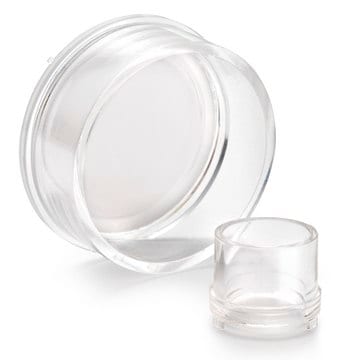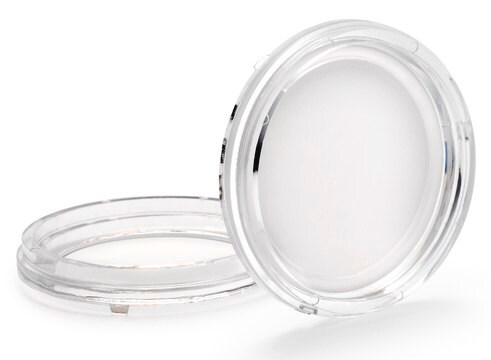PSHT004S5
Millicell® 96 well Plate
pore size 4.0 μm, polycarbonate membrane, sterile
Synonym(s):
96-Well Millicell Plate, Millicell Plate
About This Item
Recommended Products
material
flat wells
polycarbonate membrane
polystyrene
Quality Level
description
Polycarbonate, 0.4 μm pore size, sterile, 96-well cell culture plate, 96-well receiver tray and lid, pack of 5
sterility
sterile
feature
lid
manufacturer/tradename
Millicell®
parameter
75-100 μL sample volume
technique(s)
cell attachment: suitable
cell culture | mammalian: suitable
cell differentiation: suitable
drug transporter assay: suitable
permeability assay: suitable
H
26.2 mm
L
128 mm
W
84.8 mm
filtration area
0.11 cm2
plate size
96 wells
working volume
75 μL
matrix
Isopore™
pore size
0.4 μm pore size
4.0 μm pore size
input
sample type: human embryonic stem cell(s)
sample type pancreatic stem cell(s)
sample type epithelial cells
sample type neural stem cell(s)
sample type mesenchymal stem cell(s)
sample type hematopoietic stem cell(s)
sample type induced pluripotent stem cell(s)
sample type: mouse embryonic stem cell(s)
sample type cardiac stem cell(s)
binding type
Tissue Culture (TC)-treated surface
shipped in
ambient
Related Categories
General description
The Millicell device is available with a 0.4 µm PCF and a variety of PET membrane pore sizes. The plate is designed for maximum user convenience and incorporates features such as apical assist for easier pipetting and basolateral access. To reduce the risk of monolayer contamination, the membrane plates have feet to elevate the plate above the work surface when disassembled from the feeder tray. Tear drop-shaped receiver wells eliminate air bubbles as plates are assembled.
Millicell plate are optimized to grow and sustain high integrity cell monolayers. Cells grown on Millicell plate membranes grow better than on plastic because the cells are nourished from both the apical and basolateral sides. Cell growth and function more closely mimic in vivo. Millicell plates are designed for analysis as well as cell growth and can be used manually or with automated cell seeding, feeding and washing systems
With this complete system, you can grow, feed, and analyze cells in one membrane-bottom plate. The plate can be used with either a single-well or a multi-well feeding tray. At the time of transport analysis, the plate is simply transferred to a multi-well transport tray for analysis.
This streamlined design enhances functionality with:
- Seed-and-feed systems
- Automated liquid handling systems and span pipettes
- Basolateral and apical access to cells
- Transepithelial electrical resistance (TEER) measurement systems
Packaging
Components
Physical form
Other Notes
Legal Information
Certificates of Analysis (COA)
Search for Certificates of Analysis (COA) by entering the products Lot/Batch Number. Lot and Batch Numbers can be found on a product’s label following the words ‘Lot’ or ‘Batch’.
Already Own This Product?
Find documentation for the products that you have recently purchased in the Document Library.
Articles
Application note on Drug transport assays in a 96-well system using Millicell-96 System from Millipore.
Protocols
Toluidine blue selectively stains nuclear material and acidic tissue components, aiding in histological staining for tissues rich in DNA/RNA.
This protocol covers 3 modes for the microscopic examination of cell samples.
This page covers the basic indirect co-culture procedure on both sides of Millicell cell culture insert membranes.
This page covers the ECM coating protocols developed for four types of ECMs on Millicell®-CM inserts, Collagen Type 1, Fibronectin, Laminin, and Matrigel.
Related Content
Explore our portfolio of 3D cell culture tools and technologies for any 3D cell line or application and discover organoids, hydrogels, ULA, microwell, or hydrogel plates, and more.
Our team of scientists has experience in all areas of research including Life Science, Material Science, Chemical Synthesis, Chromatography, Analytical and many others.
Contact Technical Service






